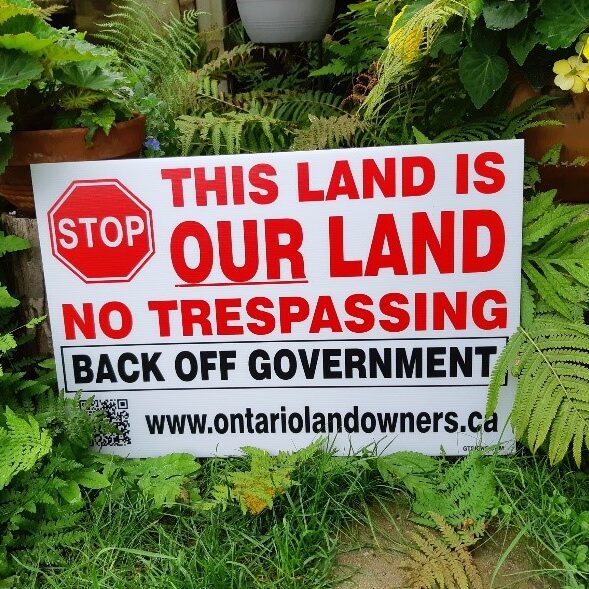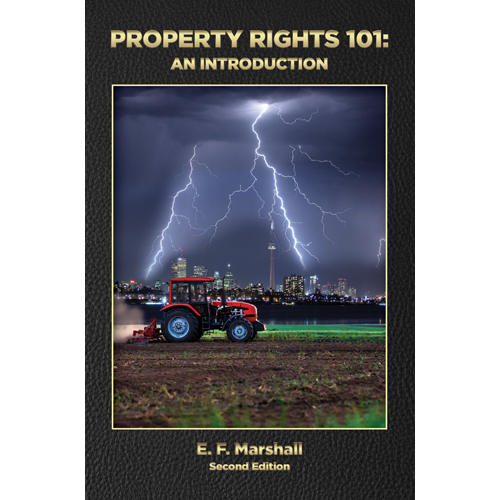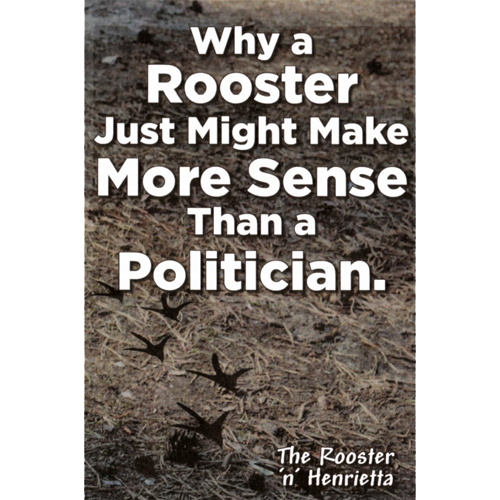Time for a Constitutional Challenge by Joan Olech
- 2019-11-01
- By admin
- Posted in Latest News
The Ontario Landowners Association introduced property rights and Crown Land Patents to so many of us. The interest generated by our membership in the OLA led us to conduct extensive research and facts have been uncovered that will be of interest and vitally important to all landowners. The time has come to test these facts in a court of competent jurisdiction through a Constitutional Challenge.
Having founded “Upper Canada Land Titles and Patent Research Initiative”, a not for profit corporation whose purpose is to accomplish the necessary research, fund the initiative and prove the validity of our land patents, we are preparing to launch this Constitutional Challenge based on the Rights given and granted by the Sovereigns’ of the Crown, prior to Confederation, in our land grants.
These land grants became Letters Patent on accomplishing the requirements regarding clearing and building a residence on our granted property. The following quote is from the Department of the Interior, explaining our governments’ position: “Letters Patent are instruments issued by the Crown, granting or confirming rights to a portion of land. Letters Patent are issued as the first title to land and serve as proof that the land has been alienated from the Crown.”
Once patented, our grants became the “root of title” for our property, with rights stating the term on the patent, heirs and assigns FOREVER. Many of the grants contained reservations, such as white pines used for shipbuilding and mines of gold and silver and these reservations remain vested in the Crown. If one were to search their land title at one of the land registry offices and pay for the parcel register that is available for every property, they might note that in the top right hand corner of the printout it says, “subject to reservations in Crown Grant”. We believe that this is on the parcel register because at Confederation, as part of the BNA Act, the Crown passed the reservations to the Province for administrative purposes.
The original grants were given for valuable consideration; either labour, loyalty, military service or money. Once the conditions were removed and they became Royal Letters Patent, these 2 party contracts became Matters of Record and as such can neither be ignored nor challenged, unless the heir or assign to the original contract has chosen to give up his rights or the Sovereign chose to buy back the property within 60 years of granting the same. Because the patented land grants were two party contracts, the reference to the reservations of the Crown Grants is incomplete. It should refer to the entire contract, including the rights given and granted.
We know the reason for the reference to the reservations being on our land parcel register is that the “rights reserved for the Crown”, known as the reservations, were passed to the Province of Ontario to administer at Confederation. But where are the “rights of the grantee referenced in the land titles system”? They are part of the contract known as the Crown Grant, the first entry in the land register of the Land Registry System noted as the Crown patent, but when our title was transferred from the land registry to land titles, our recorded rights failed to make the transition.
When the Crown granted land to the settler, soldier or loyalist, the Crown alienated the land from its’ holdings and the “fee became vested in the grantee”. And the rights so granted run with the land, therefore, regardless of who becomes the owner of all or part of the original granted land, the rights remain with the land until the owner chooses to give them up.
We own our land in fee simple, meaning “the unconditional and complete and total ownership of property”, subject only to taxation, police power, expropriation and escheat. Nowhere does it say in our grants that we are subject to Conservation controls, natural heritage designations, greenbelt plans or any other form of encumbrance or public interest the province or municipality deems appropriate for our patented property.
There are 3 types of land ownership geographically located in the province of Ontario. They are Indigenous land, Crown land and Patented land. Private property is synonymous with Patented land, and it is the only one of the three that is subject to municipal property taxation. We have to wonder if the patents are defeated in the courts, and the land escheats back to the Crown, where the tax base will come from.
Our properties were granted by the Sovereigns’ of the Crown. It was the will of the Sovereign to settle the colonies in North America and that was accomplished by granting land. So, the court case we are preparing, in the form of a Constitutional Challenge, will seek to determine why our various levels of government, who have no right, title or interest in our property, are not respecting the prerogative of the Sovereign.
Joan Olech
Upper Canada Land Titles and Patent Research Initiative
www.patentresearch.ca
www.ontarioprivateproperty.ca
Search:
Categories
Archives
- April 2024
- January 2024
- December 2023
- November 2023
- August 2023
- July 2023
- June 2023
- May 2023
- April 2023
- March 2023
- February 2023
- January 2023
- December 2022
- November 2022
- October 2022
- September 2022
- August 2022
- July 2022
- June 2022
- May 2022
- April 2022
- March 2022
- February 2022
- January 2022
- December 2021
- November 2021
- October 2021
- September 2021
- August 2021
- July 2021
- June 2021
- May 2021
- April 2021
- March 2021
- February 2021
- January 2021
- December 2020
- November 2020
- October 2020
- September 2020
- August 2020
- July 2020
- June 2020
- May 2020
- April 2020
- March 2020
- February 2020
- January 2020
- December 2019
- November 2019
- October 2019
- September 2019
- August 2019
- July 2019
- June 2019
- May 2019
- April 2019
- March 2019
- February 2019
- January 2019
- December 2018
- November 2018
- October 2018
- September 2018
- August 2018
- July 2018
- June 2018
- May 2018
- April 2018
- March 2018
- February 2018
- January 2018
- December 2017
- November 2017
- October 2017
- September 2017
- August 2017
- July 2017
- June 2017
- May 2017
- April 2017
- March 2017
- February 2017
- January 2017
- December 2016
- November 2016
- October 2016
- September 2016
- August 2016
- July 2016
- June 2016
- May 2016
- April 2016
- March 2016
- February 2016
- January 2016
- December 2015
- November 2015
- October 2015
- September 2015
- August 2015
- July 2015
- June 2015
- May 2015
- April 2015
- March 2015
- February 2015
- January 2015
- December 2014
- November 2014
- October 2014
- September 2014
- August 2014
- July 2014
- June 2014
- May 2014
- April 2014
- March 2014
- February 2014
- January 2014
- December 2013
- November 2013
- October 2013
- September 2013
- August 2013
- June 2013
- April 2013
- October 2012
- May 2012
- September 2011



